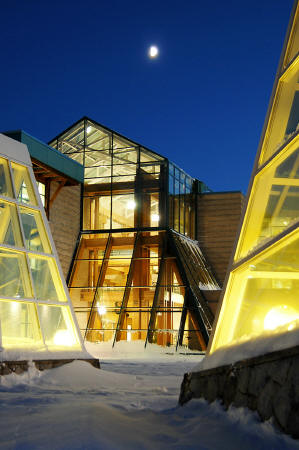UNBC Eager To Take Part In Climate Institute
By 250 News
 Canada's 'Green' University is eager to be a part of the consortium that will make up the provincial government's just-announced 'Pacific Institute for Climate Solutions'.
Canada's 'Green' University is eager to be a part of the consortium that will make up the provincial government's just-announced 'Pacific Institute for Climate Solutions'.
"It is in northern regions where the greatest effects of climage change are being felt, says UNBC President Don Cozzetto. (picture at left courtesy of UNBC)
"This makes UNBC's involvement in this new institute a natural extension of our mission to focus on the issues of the North."
Climate change research and teaching already is already a pillar at the university. Its 'Natural Resources and Environmental Studies Institute' has 63 members.
The University's Quesnel River Research Centre is actively researching how rising air temperatures are affecting river/lake temperatures, sedimentation, and fish habitat.
"We're eager to make a difference and government is providing us with the tools to do so," says Dr. Cozzetto, "The four research-intensive universities in BC can be world leaders in reducing emissions, providing new information through research, and educating future environmental stewards."
Previous Story - Next Story
Return to Home









